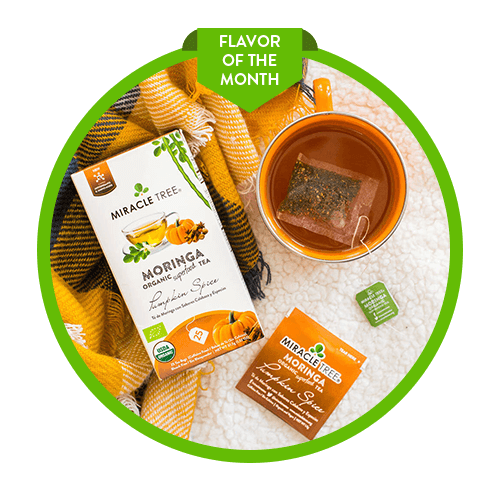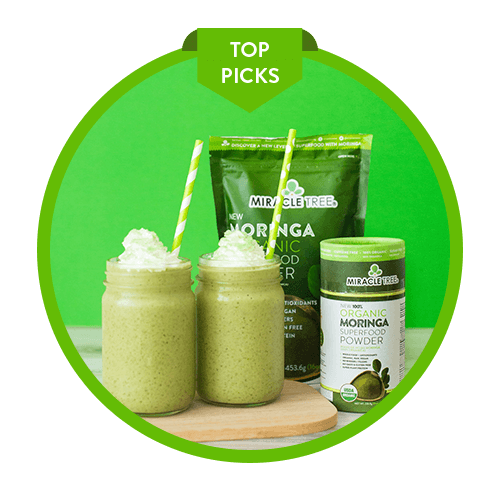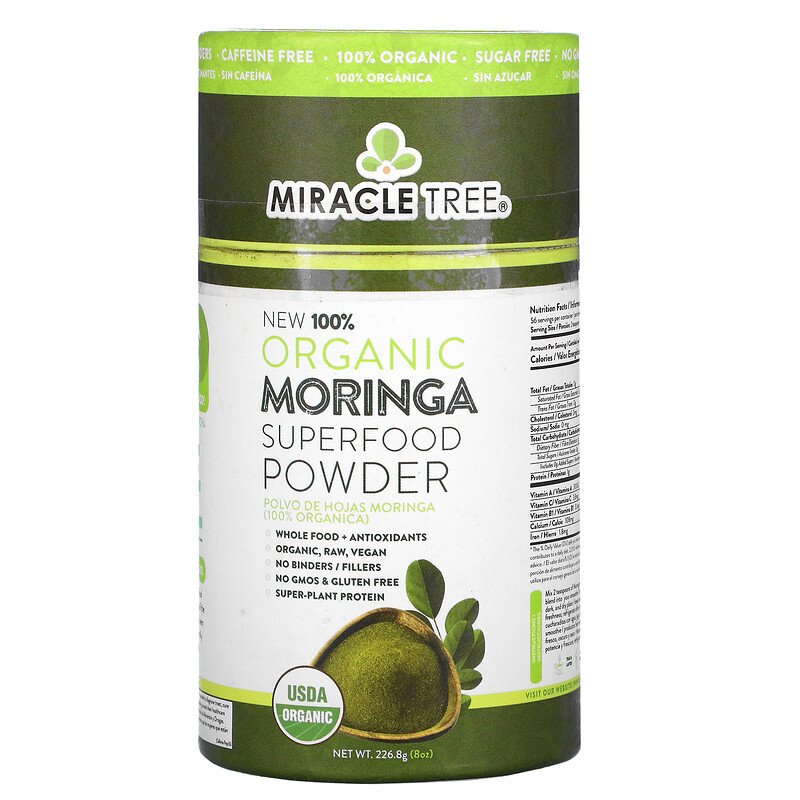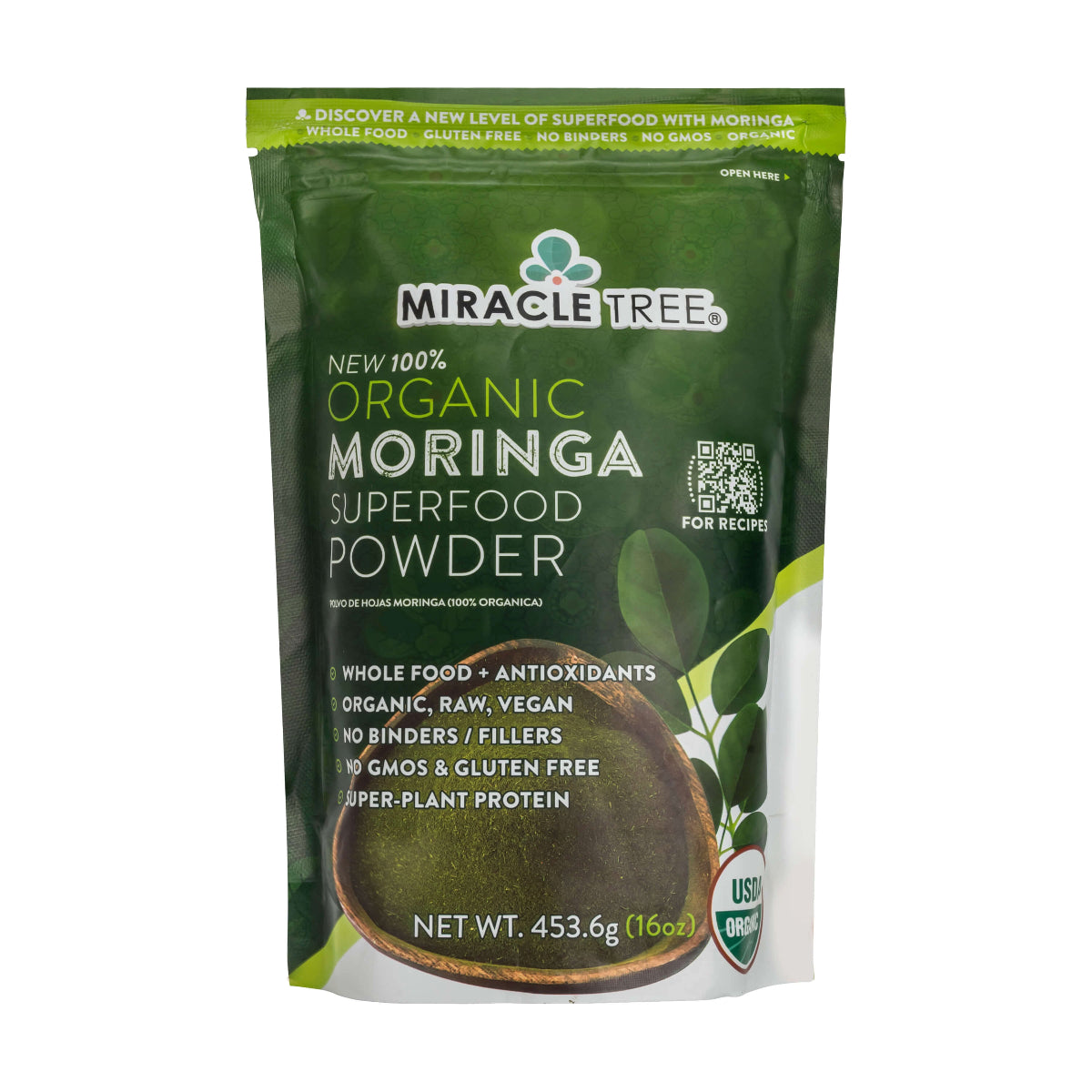The prolific nutritional benefits and composition of moringa oleifera are well-established globally. As a super green, moringa is rapidly gaining ground and becoming the new favorite, replacing its cousin, matcha. Moringa’s nutritional benefits are far-reaching and abundant. Even though it has recently burst into the spotlight, use of moringa nutritional benefits and composition has actually been around for centuries. It has been traditionally revered in Ayurvedic medicine and is highly regarded in native India as a ‘miracle tree’.
Moringa is credited with the presence of multiple important vitamins and minerals that are crucial for our sustenance and overall well-being. Here’s a breakdown of moringa nutritional benefits.
- It contains all nine essential amino acids. Amino acids are organic compounds that make proteins, which ultimately form the building blocks of all cellular processes. Most other super greens and plants contain seven of these amino acids whereas moringa contains all nine. This makes it a complete plant protein, enhancing moringa nutritional benefits.
- It is packed with antioxidants and vitamins such as vitamin C and beta-carotene. Antioxidants help in fighting free radicals. Free radicals, on the other hand, contribute to oxidative stress that could potentially be harmful for the body.
- Perhaps the most important nutritional benefit of moringa is that it is rich in vitamins A, B1 (thiamin), B2 (riboflavin), B3 (niacin), B6, and folate. Vitamin B complex is crucial for cell growth and healthy brain function. Vitamin A supports bone health and a healthy immune system.
- One cup of moringa typically contains eight grams of magnesium, which is involved in multiple important biochemical reactions in the body.
- One cup of moringa also contains eight grams of iron, which is beneficial in many ways including supporting a healthy digestive system.
- Moringa nutritional benefits are further enhanced by the presence of isothiocyanates, which are anti-inflammatory in nature.
- It is also antibacterial and antimicrobial in nature, which makes it ideal for helping against digestive disorders.
- Moringa leaves may have antiseptic characteristics so they may help fight bacterial infections and also heal wounds.
- Moringa may be beneficial for skin and hair as it is packed with antioxidants and essential vitamins and minerals. It can boost the skin’s collagen production, has anti-aging properties, minimizes acne and breakouts and nourishes and hydrates the skin.
- Moringa contains essential phytochemicals. Phytochemicals help in regulating the immune system, protect cells and DNA against oxidative damage, reduce inflammation and also help in regulating hormones minimizing risks of hormone imbalance.
- It is an adaptogen, which increases endurance, energy and concentration.
A natural detoxifier as well, moringa nutritional benefits are all encompassing. It does not contain caffeine and is an ideal natural source of energy. At the same time, it has calming properties and relaxes the mind without any jitters. It is perhaps the most abundant and complete plant protein that should be incorporated into everyone’s diet. Moringa nutritional benefits have garnered the reputation of it being a ‘miracle tree’.
Miracle Tree® products are not intended to diagnose, treat, cure, or prevent any disease. While there is promising research currently evaluating moringa and other similar products, we rather focus on their nutritional qualities.







